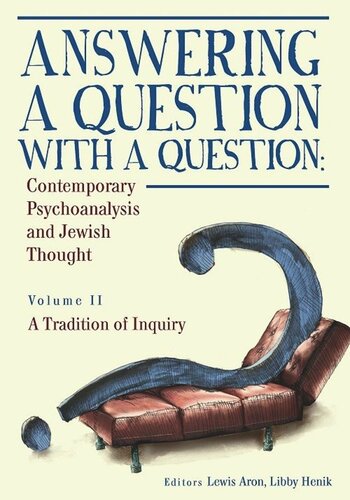

Most ebook files are in PDF format, so you can easily read them using various software such as Foxit Reader or directly on the Google Chrome browser.
Some ebook files are released by publishers in other formats such as .awz, .mobi, .epub, .fb2, etc. You may need to install specific software to read these formats on mobile/PC, such as Calibre.
Please read the tutorial at this link: https://ebookbell.com/faq
We offer FREE conversion to the popular formats you request; however, this may take some time. Therefore, right after payment, please email us, and we will try to provide the service as quickly as possible.
For some exceptional file formats or broken links (if any), please refrain from opening any disputes. Instead, email us first, and we will try to assist within a maximum of 6 hours.
EbookBell Team

4.7
76 reviewsInquiry, questioning, and wonder are defining features of both psychoanalysis and the Jewish tradition. The question invites inquiry, analysis, discussion, debate, multiple meanings, and interpretation that continues across the generations. If questions and inquiry are the mainstay of Jewish scholarship, then it should not be surprising that they would be central to the psychoanalytic method developed by Sigmund Freud. The themes taken up in this book are universal: trauma, traumatic reenactment, intergenerational transmission of trauma, love, loss, mourning, ritual—these subjects are of particular relevance and concern within Jewish thought and the history of the Jewish people, and they raise questions of great relevance to psychoanalysis both theoretically and clinically. In Answering a Question with a Question: Contemporary Psychoanalysis and Jewish Thought: A Tradition of Inquiry, Editors, Aron and Henik, have brought together an international collection of contemporary scholars and clinicians to address the interface and mutual influence of Jewish thought and modern psychoanalysis, two traditions of inquiry.